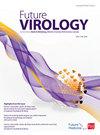Plain language summary of Pfizer-BioNTech BNT162b2 vaccine protection against COVID-19 and its safety in participants 12- to 15-years-old
IF 1.4
4区 医学
Q3 VIROLOGY
引用次数: 0
Abstract
This is a summary of an article about part of a clinical study for the BNT162b2 COVID-19 vaccine, also called the Pfizer-BioNTech vaccine. The article was published in the New England Journal of Medicine in May 2021. This summary describes how the vaccine worked in participants 12- to 15-years old. The part of the study described in the article is ongoing and expected to finish March 2023. This means that the final results may be different from the results included in this summary. The part of the study described in this summary included participants 12- to 15-years old who had no serious health issues. The BNT162b2 vaccine had already been studied in participants 16 years of age or older. In this part of the study, the researchers wanted to find out: How effective and safe the vaccine was in participants 12- to 15-years old. What the immune response to the vaccine and the vaccine safety were like in 12- to 15-year-olds compared with 16- to 25-year-olds. How well the vaccine prevented SARS-CoV-2 infections in participants who received the vaccine compared to those who did not. This is also called efficacy of the BNT162b2 vaccine Half of the participants in this study received 2 injections of the BNT162b2 vaccine and half received 2 injections of a placebo in a muscle of the upper arm. The placebo looked like the BNT162b2 vaccine but did not have any active vaccine in it. BNT162b2 had a favorable safety profile. The most common reactions were pain at the injection site, fatigue, and headache. None of the participants had serious reactions to the vaccine. The 12- to 15-year-old participants' immune system responses to the BNT162b2 vaccine were as good as or stronger than the 16- to 25-year-old participants' immune responses. The participants who received the BNT162b2 vaccine were less likely to get COVID-19 compared with the participants who got the placebo. Clinical Trial Registration: NCT04368728 ( ClinicalTrials.gov )辉瑞- biontech BNT162b2疫苗对COVID-19的保护作用及其在12- 15岁参与者中的安全性
这是一篇关于BNT162b2新冠肺炎疫苗(也称为Pfizer-BioNTech疫苗)临床研究部分内容的文章摘要。这篇文章于2021年5月发表在《新英格兰医学杂志》上。该摘要描述了疫苗如何在12至15岁的参与者中发挥作用。文章中描述的这部分研究正在进行中,预计将于2023年3月结束。这意味着最终结果可能与本摘要中包含的结果不同。本摘要中描述的研究部分包括12至15岁的参与者,他们没有严重的健康问题。BNT162b2疫苗已经在16岁或以上的参与者中进行了研究。在这部分研究中,研究人员想弄清楚:疫苗在12至15岁的参与者中的有效性和安全性。与16至25岁的人相比,12至15岁的人对疫苗的免疫反应和疫苗的安全性是什么样的。与未接种疫苗的参与者相比,疫苗预防严重急性呼吸系统综合征冠状病毒2型感染的效果如何。这也被称为BNT162b2疫苗的疗效本研究的一半参与者在上臂肌肉中注射了2针BNT162b2疫苗,一半参与者注射了2剂安慰剂。安慰剂看起来像BNT162b2疫苗,但其中没有任何活性疫苗。BNT162b2具有良好的安全性。最常见的反应是注射部位疼痛、疲劳和头痛。没有一名参与者对疫苗有严重反应。12至15岁参与者对BNT162b2疫苗的免疫系统反应与16至25岁参与者的免疫反应一样好或更强。与接种安慰剂的参与者相比,接种BNT162b2疫苗的参与者感染新冠肺炎的可能性较小。临床试验注册:NCT04368728(ClinicalTrials.gov)
本文章由计算机程序翻译,如有差异,请以英文原文为准。
求助全文
约1分钟内获得全文
求助全文
来源期刊

Future Virology
医学-病毒学
CiteScore
4.00
自引率
3.20%
发文量
84
审稿时长
6-12 weeks
期刊介绍:
Future Virology is a peer-reviewed journal that delivers essential information in concise, at-a-glance article formats. Key advances in the field are reported and analyzed by international experts, providing an authoritative but accessible forum for this ever-expanding area of research. It is an interdisciplinary forum for all scientists working in the field today.
 求助内容:
求助内容: 应助结果提醒方式:
应助结果提醒方式:


